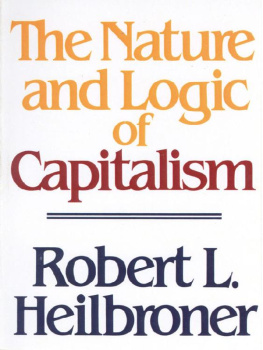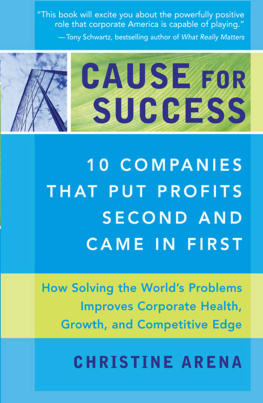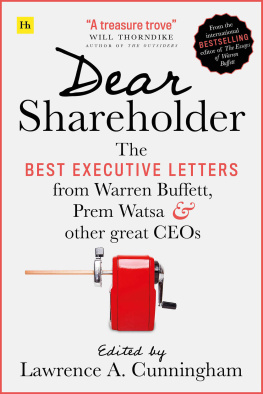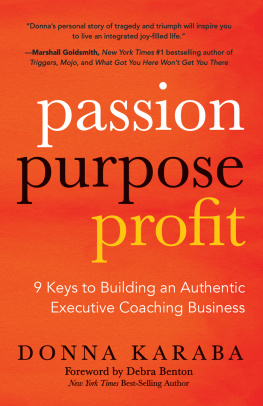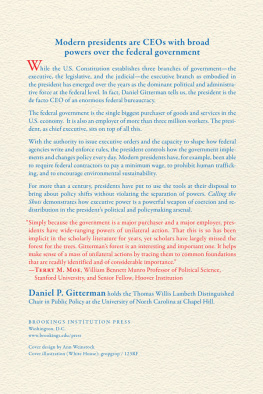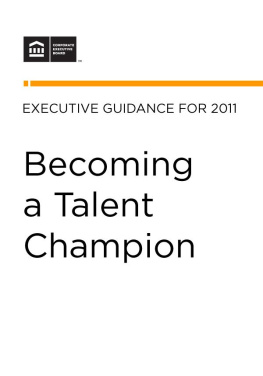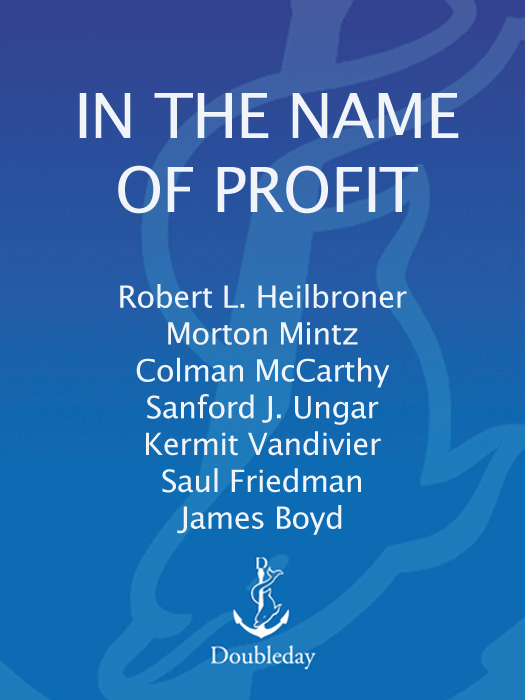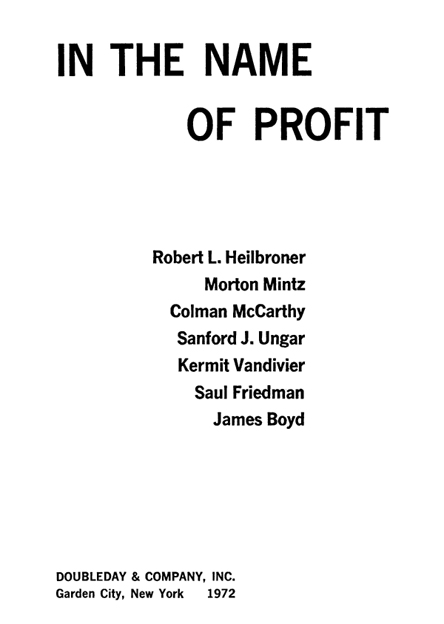LIBRARY OF CONGRESS CATALOG CARD NUMBER 70175382
COPYRIGHT 1972 BY DOUBLEDAY & COMPANY, INC.
ALL RIGHTS RESERVED
eBook ISBN 978-0-8041-5268-6
v3.1
CONTENTS
1. Why Should My Conscience Bother Me?
by Kermit Vandivier
2. Deciding To Cheapen the Product
by Colman McCarthy
3. A Colonial Heritage
by Morton Mintz
4. Get Away With What You Can
by Sanford J. Ungar
5. This Napalm Business
by Saul Friedman
6. Men of Distinction
by James Boyd
Controlling the Corporation
by Robert L. Heilbroner
FOREWORD
Many books have reported the misdeeds of the American corporationvictimizing the consumer, exploiting the environment, and so on. This book, however, deals not with the baneful results of corporate irresponsibility but with its roots in human behavior. It tries to show what sort of men run the supercorporations, what their values are, and why they act as they do.
The book grew out of a conversation I had with Thomas Congdon, now Senior Editor at Doubleday. We felt that readers might understand corporate irresponsibility better if it were presented in terms of human beings rather than of economic institutions acting impersonally. Together we planned a book of profiles, each of which would dig into one case of irresponsibility and show the key executive as he made his contemptible decision. The goal was to produce the first book that dramatized, through actual, named executives of major American companies, the sickness at the heart of the system.
To this end, six skilled investigative journalists were invited to look deeply into representative instances. Even for these experienced reporters, it was difficult to penetrate the corporate veil, and there is, for example, no instance of one of the most common kinds of corporate irresponsibility, the decision to pollute. Still, their chapters may succeed in casting the American executive in a new light. Though smoother and less openly rapacious than earlier generations of American entrepreneurs; though well-barbered and conservatively dressed; though fluent in lip service to the traditional virtues and emphatic about responsibility in his lectures to his sons and daughters, todays executive is often revealed here as a moral cripple, a man who has sold his soul to his employer, a man whose sense of social obligation is easily overwhelmed by his zeal for advancement and his rationalizations about the sanctity of profit. Indeed, the ease with which the executives in these chapters made their cynical choicesat the very first chance and without a qualmsuggests that they believed their behavior to be normal and acceptable within the world of the corporation, which in turn suggests that it is.
It is, of course, up to the reader to decide how representative these cases truly are. Our hope is merely that the chapters do, as Robert Heilbroner says in his own chapter of perspective, serve to give life to questions that tend otherwise to become too abstract to command the thoughtful attention they require, and that they make us ask where responsibility begins and where it ends. So long as we continue to think of corporate irresponsibility in the old way, as a matter solely of economic institutions, not of individuals who are products of a system and a society, we can expect the corporation to continue to devour the substance and spirit of America, in the name of profit.
DAVID OBST
Washington, D.C.
October 1971
ABOUT THE AUTHORS
ROBERT L. HEILBRONER is known as one of the most readable of economists and social critics. His first book, The Worldly Philosophers, a celebrated history of economics, is a standard introduction to economics in many colleges and universities. Later books, including The Future as History, The Great Ascent and Between Capitalism and Socialism, have also reached wide academic and general audiences. Dr. Heilbroner is Norman Thomas Professor of Economics at the New School for Social Research in New York City.
COLMAN MCCARTHY is a reporter, essayist and editorial writer for the Washington Post and author of a forthcoming Houghton Mifflin book of profiles in social dissent. His series of Post articles revealing the dangerous condition of certain General Motors school busesand GMs callous treatment of the bus ownerswas credited with helping bring about the recall of 4200 GM school buses across the nation.
MORTON MINTZ is co-author of the best-selling book America, Inc., and a reporter for the Washington Post. A former Nieman Fellow at Harvard, Mintz is the journalist who broke the story of the baby-deforming sedative thalidomide, an achievement that won him the Heywood Broun, the Raymond Clapper and the George Polk memorial awards.
SANFORD J. UNGAR is a graduate of Harvard and the London School of Economics. He worked for United Press International during the unrest in France in 1968 and co-authored a book describing that unrest, The Almost Revolution. Now a reporter for the Washington Post, he is author of the forthcoming Dutton book The Papers and the Papers, an account of the legal and political battle over the Pentagon Papers. Mr. Ungar wishes to thank Morton Mintz for assistance in preparing his chapter.
KERMIT VANDIVIER is a reporter for the Troy (Ohio) Daily News, and his assignments have included a tour in Vietnam. He first participated in and then exposed the business scandal he recounts in this book.
SAUL FRIEDMAN is Washington correspondent for the Knight Newspapers. He was a Nieman Fellow at Harvard and has been an investigative reporter since 1953.
JAMES BOYD is the executive director of the Fund for Investigative Journalism and a Contributing Editor of The Washington Monthly. In his book Above the Law, published in 1968, he told how, as administrative assistant to Senator Thomas Dodd, he helped lay bare the improprieties that led to Dodds censure by his fellow senators. He is now at work on a novel with a Washington setting for W. W. Norton & Co.
DAVID OBST, who conceived and coordinated this book, was a founder of Reporters News Service, whose series revealing the My Lai massacres won a Pulitzer Prize in 1970. Mr. Obst studied Chinese at the University of California and did graduate work in Taipei. He is editor of Ecotage (Simon & Schuster) and of the forthcoming Doubleday book A Television Viewers Guide to the News.
PART ONE
CHAPTER ONE
Why Should My Conscience Bother Me?
by KERMIT VANDIVIER
T HE B. F. Goodrich Co. is what business magazines like to speak of as a major American corporation. It has operations in a dozen states and as many foreign countries, and of these far-flung facilities, the Goodrich plant at Troy, Ohio, is not the most imposing. It is a small, one-story building, once used to manufacture airplanes. Set in the grassy flatlands of west-central Ohio, it employs only about six hundred people. Nevertheless, it is one of the three largest manufacturers of aircraft wheels and brakes, a leader in a most profitable industry. Goodrich wheels and brakes support such well-known planes as the F111, the C5A, the Boeing 727, the XB70 and many others. Its customers include almost every aircraft manufacturer in the world.


